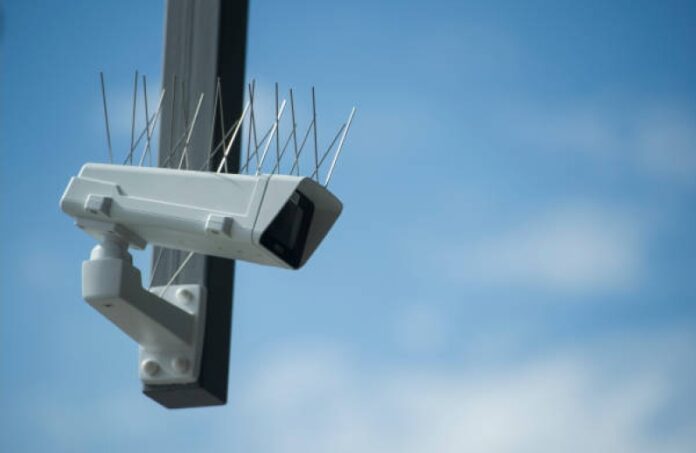A government proposal to use facial recognition technology to target women who infringe Iran’s compulsory hijab law is unworkable, according to the Tehran-based newspaper Hamshahri Online.
The proposal was discredited after it was reviewed, Hamshahri Online reported on Sept. 3, citing informed sources. The sources said the review found that the cameras were unable to recognize people’s faces.
“The cameras inside the train and the platform record the images, but they are not processed, and the only solution is to zoom in on the person’s face,” one source said.
[aesop_image img=”https://kayhanlife.com/wp-content/uploads/2022/09/2006-04-22T120000Z_641160984_GM1DSLESWPAA_RTRMADP_3_IRAN.jpg” panorama=”off” credit=”REUTERS/FILE PHOTO” align=”center” lightbox=”off” captionsrc=”custom” caption=”An Iranian policewoman (back to camera) watches a couple kiss before restraining them on a street in Tehran, Iran. ” captionposition=”left” revealfx=”off” overlay_revealfx=”off”]
The proposal was announced by the secretary of Iran’s headquarters for promoting virtue and preventing vice, Mohammad Saleh Hashemi Golpayegani. It followed the enactment of the hijab and chastity law, signed by Iran’s President Ebrahim Raisi on Aug. 15.
Wearing a headscarf (hijab) in public for women and girls over the age of 9 in Iran became compulsory after the 1979 Islamic revolution. The new law further restricts women’s dress code, requiring the hijab to cover not only a woman’s hair, but also her neck and shoulders. Under the law, women in breach of the rules could be banned for a year from public transport and entering banks for up to one year.
Golpayegani said last month that women flouting the gender-specific dress code could be identified using Tehran’s subway cameras. He suggested that the women who were photographed would be issued with a hefty fine sent directly to their homes. The plan was to roll out the initiative across the country’s subways and other public transport services.
“The central reason for these proposals is that the Iranian government wants to create an atmosphere of fear,” said Dr. Leila Alikarami, an Iranian lawyer and human rights advocate based in London, in an interview with Kayhan Life. “It is saying: we know who you are and we can come and find you.”
“The city is not a prison, and this proposal is against freedom of movement and against every basic human right,” Alikarami said.
Under article 638 of the Islamic penal code, a woman’s refusal to wear a hijab in public is a criminal act, punishable by a fine, flogging or imprisonment.
Iranian Woman’s TV Confession On Hijab Is First Of Its Kind, Rights Expert Says
Women in Iran have protested against the compulsory hijab since the revolution, and protests have become much more vocal and widespread in recent years. Women have removed their hijabs in public demonstrations, and worn brightly colored scarves or tight-fitting clothing under their coats.
On July 12, on the government’s “national day of hijab and chastity,” Iranian gender equality advocates urged women to publicly remove their veils. July 12 marked the anniversary of a protest by conservative clerics in 1935 against a decree by the late Reza Shah Pahlavi (1878-1944), which ordered all men to wear European-style bowler hats.
Women across Iran shared photos and videos of themselves without their hijabs, and several videos showed men in the country joining women in the protests. Iran’s Supreme Leader Ayatollah Ali Khamenei accused the West of inciting the demonstrations.
[aesop_image img=”https://kayhanlife.com/wp-content/uploads/2022/04/akhund-zanan.webp” panorama=”off” credit=”By Behnam Mohammadi” align=”center” lightbox=”on” captionsrc=”custom” caption=”Women’s Movement in Iran.
” captionposition=”left” revealfx=”off” overlay_revealfx=”off”]
Reports by the United Nations and international human rights watchdogs have raised concerns that women human rights advocates are disproportionately affected by harassment, arrest and detention in Iran. More than 500 of them are currently imprisoned in the country.
“These policies clearly have not worked. It’s long overdue, but the Iranian government needs to start to respect the rights of women. That would be far better for the government, and for the population,” Alikarami said.








